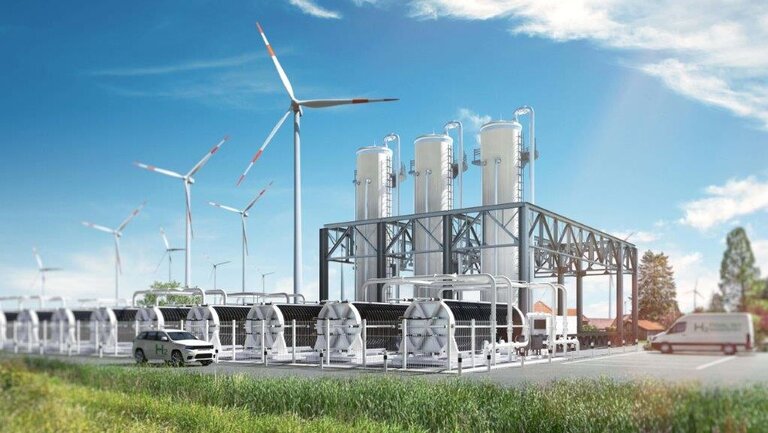Oldenburg/Stuttgart, Germany, August 23, 2024. The northern German energy supplier EWE is planning to build one of Europe’s largest hydrogen production plants in the city of Emden (federal state of Lower Saxony) by 2027. EWE has entrusted Stuttgart-based Drees & Sommer SE, a consulting company that specializes in infrastructure, construction and real estate, with the management of the large-scale project.
Drees & Sommer brings a wealth of expertise in project management and hydrogen.
The consultancy firm with headquarters in Stuttgart is specifically commissioned to handle project steering, approval procedures and engineering management. The planning and consulting company has also supervised the tendering and award of the electrolyzer contract as the main component of the plant. “I am delighted that Drees & Sommer is on board with the project. We can count on the firm as a reliable service provider with many years of experience in managing large-scale projects,” says Kerstin Kuwan, who is responsible for the project at EWE.
“The project is very complex,“ explains Alexander Stubinitzky, Head of Hydrogen & SynFuels at Drees & Sommer. “All trades have to be scaled up, and there are many interfaces that have to be cleanly organized during implementation. The project is extremely demanding in technical terms and with regard to organization and scheduling of time.“ In order to carry out the project within the planned cost and time constraints, and in high quality, project management, which is a particular strength of Drees & Sommer, is of particular relevance. The company brings project management experience from successfully implementing many complex large-scale projects, coupled with technical expertise in hydrogen production.
The planned 320-megawatt electrolysis plant in Emden will produce up to 26,000 metric tonnes of green hydrogen per year for various industrial applications in the region, in particular for the steel industry. The green hydrogen in Emden is mainly produced from wind power.
Project contributes to avoiding grid bottlenecks
In addition to the project in Emden, EWE is also planning to build an electrolysis plant in Bremen with a capacity of 50 megawatts. This will be realized by the city’s municipal utility, Stadtwerke Bremen (SWB), a wholly owned subsidiary of EWE. Both projects make an active contribution to avoiding grid bottlenecks, so they are a key pillar in the energy transition. The two electrolysis projects are part of Clean Hydrogen Coastline (CHC), EWE’s large-scale overall hydrogen project. It integrates generation, transport, storage and use of green hydrogen. EWE successfully applied for funding for the CHC project under the European Important Project of Common European Interest (IPCEI) program in February 2021. Dr. Robert Habeck, Federal Minister for Economic Affairs and Climate Protection, handed over the national funding notice for EWE’s project in Berlin in mid-July of this year. Of the 500 million euros in funding, 350 million are German federal funds and 150 million have been provided by the federal state government. The total investment amount for CHC is more than 800 million euros.
In addition to construction of the system-enhancing production plants in Emden and Bremen, EWE is planning, as part of the CHC project, the repurposing of a gas cavern in Huntorf (Lower Saxony) for the storage of hydrogen, the construction and conversion of several pipeline sections, and the cross-sector use of green hydrogen on an industrial scale, for example in the steel industry.
